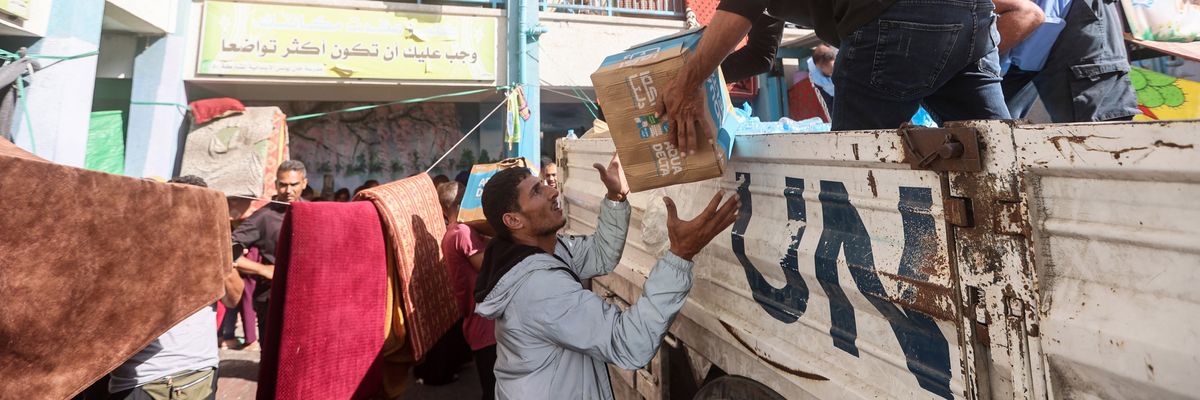For United Nations humanitarian workers struggling to keep hundreds of thousands of Palestinians alive in Gaza, a top fear over the past several weeks has now been realized: On Monday officials said the U.N. refugee agency's emergency fuel supply ran dry, meaning workers will no longer be able to provide services necessary for keeping diseases at bay and ensuring hospitals can run.
The U.N. Relief and Works Agency (UNRWA) operates a fuel depot on the Gaza-Israel border that contains strategic reserves of fuel, but 37 days into Israel's bombardment and total blockade of the enclave, "that reservoir is now empty," Commissioner-General Philippe Lazzarini toldReuters.
A request for a refill of the depot made to the Israeli military, which has killed more than 11,000 Palestinians with its bombings and ground attacks so far, has gone unanswered, The Guardian reported.
The rapidly dwindling supply of fuel has led water treatment plants to cease operations across Gaza, as well as bringing sewage removal operations to a halt. The lack of safe drinking water and the pileup of waste has already shown signs of causing infectious diseases to spread.
Lazzarini said the latest development will "severely impact ambulances and major hospital operations" by Tuesday.
Doctors and nurses are already struggling to provide care to patients in hospitals where medical supplies are running extremely low.
The UNRWA also needs fuel to keep its own shelters running and provide services for nearly 800,000 people. The agency has removed hundreds of tons of solid waste from its refugee camps in southern Gaza and provided safe drinking water to nearly 300,000 people using fuel.
Its ability to continue those services will end by Wednesday, Lazzarini warned.
"The humanitarian operation in Gaza will grind to a halt in the next 48 hours," said Thomas White, director of UNRWA affairs in the enclave.
On CNN, Lazzarini noted in an interview Monday that UNRWA shelters in southern Gaza—where Israel has ordered Palestinians to evacuate, claiming it is making targeted strikes on the northern region and zeroing in on Hamas—have been bombarded in recent weeks, with more than 100 employees killed.
"There is absolutely no safe zone in the Gaza Strip," said Lazzarini.
